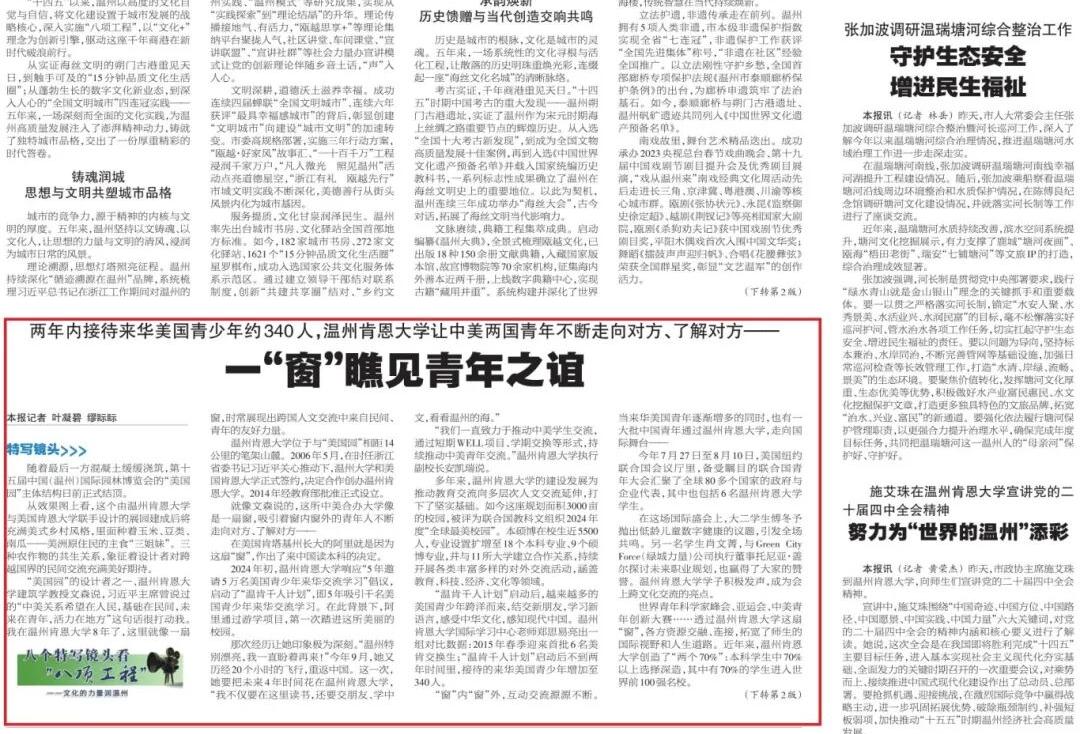
Basit Farwa
-
Position:Lecturer of Biology
-
College:College of Science, Mathematics and Technology
-
Office:CSMT 421
-
E-mail:
Education background
BS (Hons.) Bioinformatics and Biotechnology
Government College University Faisalabad, Pakistan
MS in Biotechnology
Government College University Faisalabad, Pakistan
Ph.D. in Crop Genetics and Breeding
Zhejiang University
Courses teaching in WKU
Principles of Biology (with Laboratory)
General Biology (with Laboratory)
Research and Technology
Biography
|
2014-2017 |
Visiting lecturer, Department of Biotechnology, Riphah International College University Faisalabad, Pakistan |
|
2015-2016 |
Undergraduate Research Assistant (Prime minister youth internship program), Government College University Faisalabad, Pakistan |
|
2017- 2019 |
Regular lecturer, Department of Biotechnology, Riphah International College University Faisalabad, Pakistan |
Research interests
Dr. Farwa’s research focus is on Plant Stress Physiology, Mechanism of Plant growth, Advance Seed Technology, and Biochemistry. Additionally, she is passionate about discovering new insights related to abiotic stress mitigation by using phytohormones.
Selected Publications/scholarly and creative work
- Basit, F., Bhat, J.A., 2023. Nitric Oxide Mitigates Vanadium Toxicity in Soybean (Glycine max L.) by Modulating Reactive Oxygen Species (ROS) and Antioxidant System. Journal of Hazardous Materials
- Basit, F., Shahid, M., Abbas, S., Naqqash, T., Akram, M.S., Tahir, M., Azeem, M., Cai, Y., Jia, S., Hu, J., 2023. Protective role of ZnO nanoparticles in soybean seedlings growth and stress management under Cr-enriched conditions. Plant Growth Regulation, 100, pages703–716.
- Basit, F., Bhat, J.A., Guan, Y., Jan, B.L., Tyagi, A., Ahmad, P., 2022a. Nitric oxide and spermine revealed positive defense interplay for the regulation of the chromium toxicity in soybean (Glycine max L.). Environmental Pollution 308, 119602.
- Basit, F., Nazir, M.M., Shahid, M., Abbas, S., Javed, M.T., Naqqash, T., Liu, Y., Yajing, G., 2022b. Application of zinc oxide nanoparticles immobilizes the chromium uptake in rice plants by regulating the physiological, biochemical and cellular attributes. Physiology and Molecular Biology of Plants 28, 1175-1190.
- Basit F, Chen M, Ahmed T, Shahid M, Noman M, Liu J, An J, Hashem A, Fahad Al-Arjani A-B, Alqarawi AA (2021a): Seed priming with brassinosteroids alleviates chromium stress in rice cultivars via improving ROS metabolism and antioxidant defense response at biochemical and molecular levels. Antioxidants 10, 1089
- Basit F, Liu J, An J, Chen M, He C, Zhu X, Li Z, Hu J, Guan Y (2021b): Brassinosteroids as a multidimensional regulator of plant physiological and molecular responses under various environmental stresses. Environmental Science and Pollution Research 28, 44768-44779
- Basit F, Liu J, An J, Chen M, He C, Zhu X, Li Z, Hu J, Guan Y (2021c): Seed priming with brassinosteroids alleviates aluminum toxicity in rice via improving antioxidant defense system and suppressing aluminum uptake. Environmental Science and Pollution Research, 1-15
- Basit F, Asghar S, Ahmed T, Ijaz U, Noman M, Hu J, Liang X, Guan Y (2022a): Facile synthesis of nanomaterials as nanofertilizers: a novel way for sustainable crop production. Environmental Science and Pollution Research, 1-17
- Basit F, Bhat JA, Dong Z, Mou Q, Zhu X, Wang Y, Hu J, Jan BL, Shakoor A, Guan Y (2022b): Chromium toxicity induced oxidative damage in two rice cultivars and its mitigation through external supplementation of brassinosteroids and spermine. Chemosphere 302, 134423
- Basit F, Bhat JA, Han J, Guan Y, Jan BL, Shakoor A, Alansi S (2022c): Screening of rice cultivars for Cr-stress response by using the parameters of seed germination, morpho-physiological and antioxidant analysis. Saudi Journal of Biological Sciences 29, 3918-3928
- Basit F, Ulhassan Z, Mou Q, Nazir MM, Hu J, Hu W, Song W, Sheteiwy MS, Zhou W, Bhat JA (2022d): Seed priming with nitric oxide and/or spermine mitigate the chromium toxicity in rice (Oryza sativa) seedlings by improving the carbon-assimilation and minimising the oxidative damages. Functional Plant Biology
- Basit F, Sana A, Tasawar A, (2020): Biological Production of Antimicrobial Peptides Against Plants as Well as Human Pathogens. Bioscience Biotechnology Research Communication
- Chen M, Fu Y, Mou Q, An J, Zhu X, Ahmed T, Zhang S, Basit F, Hu J, Guan Y (2021): Spermidine induces expression of stress associated proteins (SAPs) genes and protects rice seed from heat stressinduced damage during grain-filling. Antioxidants 10, 1544
- Hamid H, Thakur A, Thakur N, Basit F, (2021): Role of functional food components in COVID-19 pandemic: A review. Ann. Phytomed. Int. J 10, 5240-5250
- Hao W, Shah SMA, Nawazb A, Barkat MQ, Souhail A, Basit F, (2020): COVID-19 epidemic spread and the impact on public health & safety policy: an analysis of the adoption of preventive measures and effective management: evidence from Pakistan. Revista Argentina de Clínica Psicológica 29, 722-736
- Maqsood A, Shahid M, Hussain S, Mahmood F, Azeem F, Tahir M, Ahmed T, Noman M, Manzoor I, Basit F (2021): Root colonizing Burkholderia sp. AQ12 enhanced rice growth and upregulated tillering-responsive genes in rice. Applied Soil Ecology 157, 103769
- Nawaz A, Su X, Iqbal S, Zahoor H, Asad A, Asghar S, Basit F, Barkat MQ, Souhail A, Raheel Shah SA (2020): Validating a phenomenological mathematical model for public health and safety interventions influencing the evolutionary stages of recent outbreak for long-term and short-term domains in Pakistan. Complexity 2020
- Shahid M, Shah AA, Basit F, Noman M, Zubair M, Ahmed T, Naqqash T, Manzoor I, Maqsood A (2020): Achromobacter sp. FB-14 harboring ACC deaminase activity augmented rice growth byupregulating the expression of stress-responsive CIPK genes under salinity stress. Brazilian Journal of Microbiology 51, 719-728
- Tanwir K, Shahid M, Abbas S, Ali Q, Akram MS, Chaudhary HJ, Javed MT, Farwa B, (2022): Deciphering distinct root exudation, ionomics, and physio-biochemical attributes of Serratia marcescens CP-13 inoculated differentially Cd tolerant Zea mays cultivars. Environmental Science and Pollution Research, 1-18
Example of Biography
Professor Farwa Basit, College of Science, Mathematics and Technology, email: bfarwa@kean.edu, Office No. GEHC419
Example of Research interests
Dr. Farwa’s research focus is on Plant Stress Physiology, Advance Seed Technology, and Biochemistry. Additionally, she is passionate about discovering new insights related to abiotic stress mitigation by using phytohormones.
College Programs
- B.S. Chemistry
- B.S. Environmental Science
- B.S. Biology (Cell and Molecular Biology Option)
- B.A. in Mathematical Sciences (Data Analytics Option)
- B.S. Computer Science




